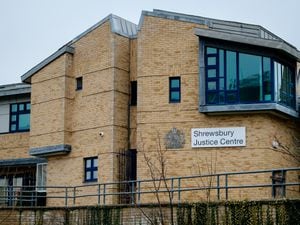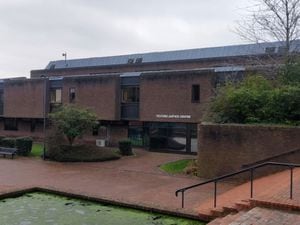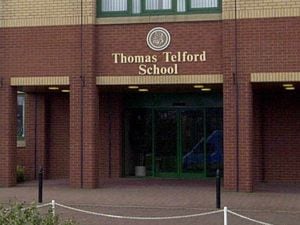Telford mother 'lucky to be alive' after stroke during pregnancy
A mother who suffered a stroke when she was eight months pregnant says she is "lucky to be alive" after undergoing pioneering treatment to remove blood clots from her brain.
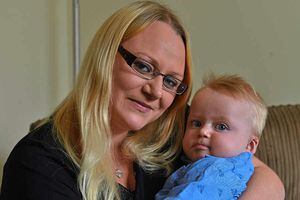
Charlotte Smith was just 27 when she suffered the stroke.
She was in the latter stages of pregnancy and thought little of it when she woke up with a bad headache.
But it developed and within hours she had been taken to hospital in Stoke where medics fought to save her life.
Charlotte, of St Georges, Telford, said: "I went back to bed and tried to get back to sleep but it was impossible.
"I got up and thought I needed some fresh air so I went out for a walk.
"I went into town and felt all funny. I lost the feeling in the right side of my body and collapsed in the street. Two young girls stopped to see if I was OK and my partner was in town so he soon rushed to my side."
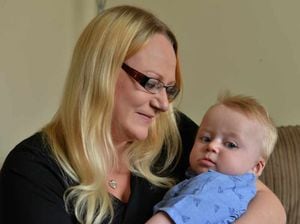
Charlotte was taken to Telford's Princess Royal Hospital, but they could not treat her with traditional clot-busting drugs because of the risk to her unborn baby.
She was transferred to Royal Stoke University Hospital, where the stroke unit was trialling a pioneering mechanical thrombectomy technique.
"I remember waking up in hospital, and the nurses said I had had a stroke," she said. "They said I really should not have survived."
After the procedure she was able to move the right side of her body again and was sent home the next day.
Four weeks later she gave birth to a healthy baby boy, Harrison, weighing 8lb 11oz, with a normal delivery and no complications.
Charlotte, who also has a daughter, Ella Ford, four, said: "I had Harrison four weeks later and he was a fine healthy baby.
"It was all a bit of a blur, but when I woke up and I was told I had a stroke I could not believe it.
"There is no history of stroke in my family and I had no other symptoms. The medics are not sure what caused it."
Six months later Charlotte has made a full recovery.
She added: "I now have to be on tablets for the rest of my life but it is a small price to pay.
"I feel very grateful for what the doctors did – they saved my life."
An estimated 10,000 patients a year in Britain could benefit from the new operation, experts say.
The procedure involves carefully removing the devastating clots from deep within the brain using a 3ft-long wire.
A stent at the end of the wire envelopes the clot and pulls it out, allowing blood to flow freely to the brain.
The first 24/7 regional unit to use the technique has now opened at St George's Hospital in south London but other hospitals are starting to follow suit.
Crucially, it has to be used within four and a half hours of the stroke to be effective. NHS England is considering whether to roll the technique out more widely.
Until now doctors have used drugs to dissolve the blood clots that cause strokes – but the chemicals can have severe side effects, and do not work at all in about 15 per cent of patients with the most severe strokes.
A study of 1,287 patients with major strokes, published in the Lancet journal in February, showed that 50 per cent of people treated with mechanical thrombectomy had shown neurological recovery within 24 hours, compared to just 21 per cent treated with clot-busting drugs. They were also far less likely to be left disabled 90 days after their stroke.
Alexis Wieroniey, deputy director of policy and campaigns at the Stroke Association, said: "Thrombectomy is revolutionary because it reduces the chances of someone being severely disabled after a stroke. NHS England is deciding if this vital treatment should be available across the country.
"We urge them to support this. It's a powerful treatment that could potentially be given to 10,000 stroke patients per year.
"We already know that access to stroke treatment and care varies depending on where people live. We do not want that to be the case with this treatment."

